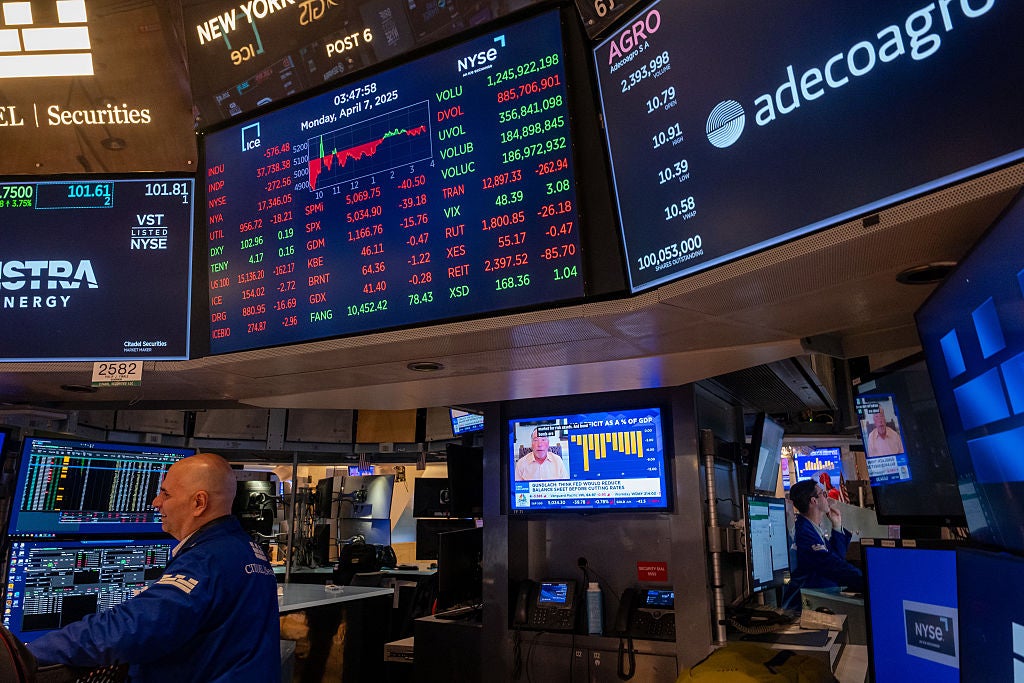An economist cited by Donald Trump’s team to justify his aggressive tariff hikes has accused the U.S. government of misinterpreting his work and “causing a recession”.
An article co-authored by Pau S Pujolas, an associate professor at McMaster University in Canada, was one of the five bibliographical references used by the White House to support the sweeping levies Trump has imposed on the rest of the world. The 2024 study explores who would win in a trade war between the U.S. and China.
But Pujolas has said that there is a “huge gap between my study and what the White House is doing. It’s an outrage”.
The article, entitled “Trade Deficits in Trade Wars”, concludes that in a trade war between two countries, the one with a trade deficit wins.
The chairman of Trump’s council of economic advisors, Steve Miran, referred to the findings on Monday when making the case for Trump’s strategy.
“They show that by imposing tariffs on exporting countries, the United States can improve economic outcomes, increase revenues, and impose huge losses on the tariffed nation, even with full-blown retaliation,” he said.
However, referring to Trump posing with a large board of country-by-country tariffs, Catalan economist Pujolas told Spanish newspaper El Pais about the many ways the president’s plan differs from his theoretical study.
“Miran and the Council of Economic Advisers are very smart, but I know that what the White House is doing isn't necessarily what they're telling it,” he said. “The formula and tables Trump used as Moses have nothing to do with my article or the articles cited.
“We created a very comprehensive model and asked them if the United States would benefit from imposing an optimal tariff on China, and they said yes. But the ones they imposed in 2018 weren't optimal, and therefore they've already lost that trade war. And if you include the animal tariffs that Trump has imposed now in our model, they're sure to lose. They're beyond measure, and it goes beyond China: a trade war against the European Union, with which they have a smaller deficit, makes no sense.”

Pujolas added that the model, based on 2014 data that pre-dates Trump’s arrival on the political stage, does not account for “an erratic leader who wants Greenland or wants to make Canada the 51st state”.
On the blog Nothing is Free he also pointed out “the gain from a tariff comes only at the cost of impoverishing our neighbors; if our neighbors play it tit-for-tat, we (almost always) end up blind.”
Pujolas isn’t the only person cited by Trump to have criticized the President’s economic policies. University of Chicago Economics Professor Brett Neiman, formerly a Biden administration Treasury official, said the White House had got the tariff rates “very wrong.”
He continued that the Trump administration had wildly overcalculated tariff rates placed on nearly all countries that export to the U.S. Writing a guest essay for The New York Times, he said: “I disagree fundamentally with the government’s trade policy and approach.”
“Even taking it at face value, our findings suggest the calculated tariffs should be dramatically smaller — perhaps one-fourth as large.”
Neiman called for the tariffs to be scrapped entirely.
The tariff hikes caused stock markets across the globe to tank on Monday as even some of Trump’s allies, including Bill Ackman, called for a rethink.
Trump dismissed the panic and said “sometimes you have to take medicine to fix something” as he threatened to raise import fees even further against China unless Beijing dropped its retaliatory measures.
The president has since insisted his economic strategy is a “war with the world” in pursuit of fairer trading conditions for the United States.







